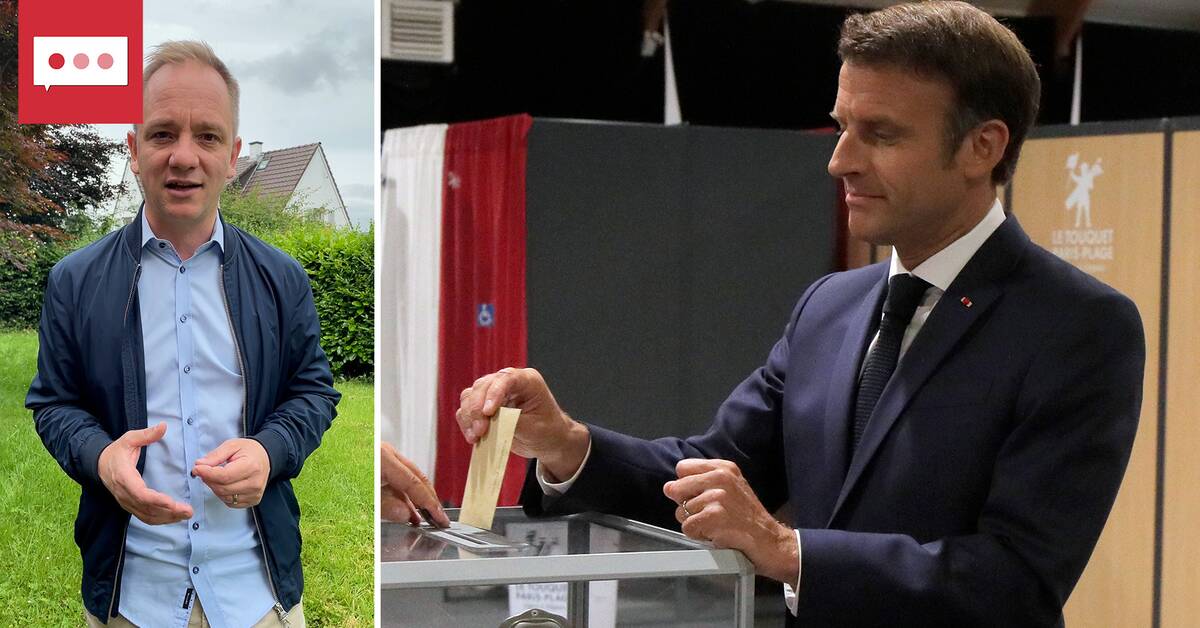On Sunday, the second round of the French parliamentary elections will be held.
The question is whether President Macron's Liberals will get a majority in parliament or not.
It will be crucial for how much of its policy Macron will be able to implement over the next five years, for example raising the retirement age to 65.
The first round of voting last Sunday saw no clear winner.
The left-wing alliance Nupes and its leader Jean-Luc Mélenchon received almost exactly the same number of seats as the center-right coalition Together, which supports Macron.
- The left hopes to become the largest and make Melenchon prime minister so there will really be a division of power, but it does not seem so likely, says SVT's correspondent David Boati.
This is partly due to the low turnout, not least among young people - many of them left-wing voters.
Last Sunday, less than half of those eligible to vote voted, which seems to favor the Liberals.
- But it is above all the system of one-man constituencies that benefits Macron with its clear middle position, says David Boati.
Uncertain location
It is considered most likely that Macron's Together coalition will squeeze the 289 seats in the National Assembly needed to get a direct majority in the lower house of parliament.
But the situation is uncertain, the last opinion polls before Sunday's election spread between 255 and 310 seats for Macron.
Without its own majority, the government will have to negotiate with either the Left Alliance or the Republicans to get its policies through.
"Can get messy"
Only 10 out of 50 million French voters have Macron as their first option.
So far there have been no protests since the presidential election, the political energy has been directed at the parliamentary elections, according to David Boati.
But that may change.
- If Macron gets a majority, or almost leans towards the Republicans, I think the frustration and the feeling that "it does not matter how we vote", "the system is rigged" will grow and it can be messy in the future.
Especially if prices continue to rise and people are struggling to get it going.

